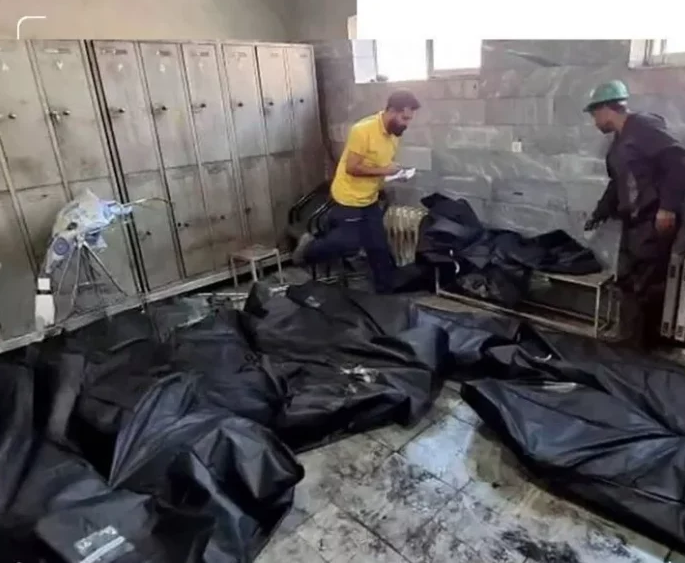Re-post from Shahrokh Zamani Action Campaign
A gas explosion at the Tabas coalmine on Saturday, September 21st, killed 53 miners and injured around 20 of their workmates.
The privately owned mine in South Khorasan Province is one of Iran’s biggest and has a dismal health and safety record. The day before the blast workers had alerted their boss that there was a methane gas leak. But they were told that this was not a problem and they should return to work. And when the dead and injured workers were pulled out of the mine, everyone could see that the miners had been wearing split and worn-out rubber boots. They had worked and died at a depth of 700 metres, using the minimum equipment their boss could get away with.
Accident or manslaughter?
As workers and labour organisations across Iran send their condolences to the families and workmates of the dead miners, some activists are calling the explosion not an accident but an act of “murder”. They refer to the cumulative statistics that show the contractors and managers throughout Iran choose to exploit workers in the most brutal way, maximising the profits of the capitalists and their blood-soaked regime.
Already, since the start of the Iranian year in March, over 2000 workers have died during so-called workplace accidents. And over 27,000 were injured and maimed. Between May 4th and September 22nd – i.e., four and a half months – there were twelve so-called accidents in 12 mines, resulting in 61 workers’ deaths. And the deadly statistics stretch back decades.
As with the May 2017 blast at the Yurt coal mine in Golestan Province that killed 43 workers; and the deaths at Aghdareh’s gold mine in West Azerbaijan Province; the authorities threaten the dead miners’ bereaved families to keep quiet and not demand anything from the bosses or the regime.
Even though the Iranian regime has a token health and safety inspectorate, it is obviously incapable of making Iran’s mines, factories and work-places safe. Around 1200 inspectors are supposed to scrutinise the working conditions of 1.3 million workers. As the statement of the Khuzestan Vanguard Socialist Workers’ Cell (KVSWC) has said, “… every worker can see an inspector for a few minutes once in fifty, sixty years.”
The KVSWC statement adds: “The first thing the Anti-Labour Minister … did was to absolve the contractor. Of course, we shouldn’t expect anything else from him. All the contractors are from the 500 families of the Leader, the Pasdaran and government officials. In the spring of 1979, they hoodwinked us: saying disband your workers’ councils, Khomeini has said that the revolution has succeeded, and the Shah and his cronies have left; saying the country had been in the hands of a thousand monarchist families and now it has been saved. But the country wasn’t saved. It’s in the hands of 500 clerical and Pasdaran families.”
The Iranian regime’s minister claims that the Tabas mine tragedy was an unpredictable event, even though many basic health and safety precautions were not taken: no monitoring of methane levels at the beginning and the end of each shift; no ventilation system; no ‘safe zones’ inside the mine; antiquated machinery and equipment. And the contractor was still given a mining licence. It is no wonder the number of incidents, deaths and injuries keeps on rising.
Iran’s capitalists and their regime always try to sow division, discord and disunity among the workers. Their consistently unequal treatment of permanent staff and contract workers even includes their access to medical facilities, causing unnecessary deaths. Two days before the Tabas mine blast, an oil worker at Khuzestan’s National Iranian Drilling Company died after a heart attack while two ambulances sat idle. These ambulances were meant for transporting the permanent staff of the company only – and not any contract workers.
The regime’s anti-working-class policies also lead to countless suicides among industrial workers, medical staff and other sections of the Iranian working class.
Clearly neither the capitalists’ government nor any bosses in the private or state sector give a damn about workers’ health and safety. Only workers’ unity can stop further brutalisation, atrocities and tragedies.
30 September 2024













